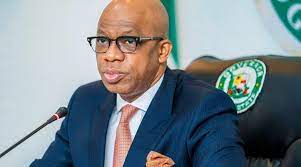By: Tijani Salako.
Following a recent report by the Oikus that 59,000 property listings in Nigeria were duplicated, revealing the excess gap of data integrity in the Nigerian real estate industry, stakeholders in the building industry have hence decry the rise of fake property listings and data inconsistencies in the Nigerian property valuation market.
In an exclusive interview with Mr Olusanjo Fawole, a Co-Partner at the Ubosi Eleh estate surveyor and valuer, raised the concern over the growing number of property duplication and fake property listings across Nigeria, warning that the trend is eroding investor confidence and distorting market data.
Speaking to a Standard Times reporter on the challenges of data management in the real estate industry, he noted that the problem stems from the increasing number of unregulated agents and inaccurate listings. “We are in an age where everybody wants to buy property not because they want to live there, but because they think there’s profit in it. You will see someone advertising a property that doesn’t even exist. The issue of fake agents is a major challenge we’re still dealing with as an institution.”
Furthermore, Mr Fawole acknowledged that the high demand for housing among Nigeria’s population of over 200 million people has created an environment where fake agents and duplicate listings thrive. “The supply is far lower than the demand, and that’s why you have these challenges. The real issue is the shortage of housing and the tendency of people to take advantage of others through misinformation.”
He added that the situation discourages both local and foreign investors, as unreliable data makes it difficult to assess the true value of properties. “When data is inaccurate, investors cannot make informed decisions. You will find the same property appearing on different sites, listed at different prices. That erodes trust and confidence.”
Similarly, the mortgage institutions are also affected since property valuation depends on reliable data. Inaccurate figures, he warned, lead to faulty valuations and undermine the credibility of the entire housing finance system.
Tackling this menace, he revealed that Ubosi Eleh+Co began publishing the Real Estate Report in the last eight years, providing verified figures based on actual transactions and management data. Other firms, including Metro and Notcall, have since joined in generating similar reports.
“Our Real Estate Report has helped to change the narrative; it has become a reference point for professionals and industry players who now rely on verified data.” In turn, aiding the professional body overseeing estate surveyors and valuers, harmonizing the reports from different firms to ensure consistency.
“If one report says a property in a particular area rents for ₦5 million, and another says ₦4.5 million, that’s still within a 5 percent margin of error. The problem comes when you see a 15 or 20 percent difference, meaning something is wrong.”
Mr Fawole faulted the proliferation of unlicensed agents for most of the discrepancies in property data. “We have less than 10,000 registered estate surveyors and valuers in Nigeria, serving a population of over 200 million; however, many of the so-called agents are not bound by ethics or regulation. That’s why you find the same property listed for ₦25 million on one site and ₦8 million on another.”
Calling for stronger government regulation and public enlightenment to curb the spread of fraudulent property practices. “The Lagos State Government has taken steps by insisting that only registered agents can operate, but more needs to be done nationally. People must also learn to deal with professionals who are licensed and traceable. We need accurate data, proper regulation, and awareness to rebuild trust in Nigeria’s real estate sector.” He added.












